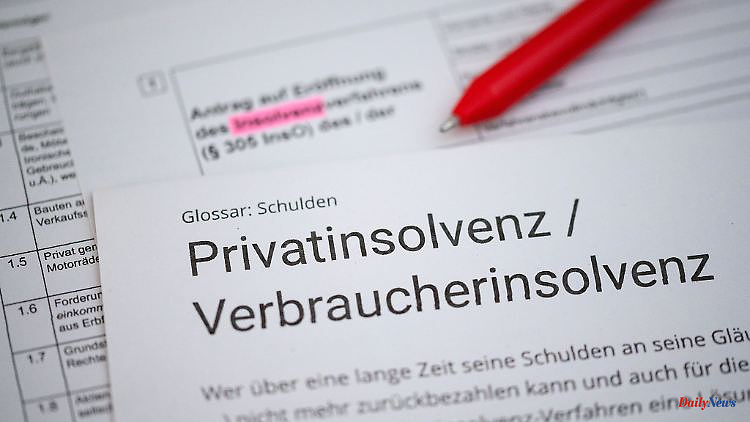Higher prices are putting more and more consumers under pressure. Anyone who becomes over-indebted will eventually have to file for personal bankruptcy. In the north, and thus also in MV, this is more often the case than in the south.
Schwerin (dpa/mv) - The number of private bankruptcies in the north-east fell last year, but is above the value before the corona pandemic. After a sharp increase in 2021, the credit agency Crif recorded 2246 cases for the past year. With a minus of 18 percent compared to the previous year, MV recorded the sharpest decline behind Bremen (minus 23.4 percent). According to the experts, a change in the law in 2021 drove up the numbers.
With 139 cases per 100,000 inhabitants, the north-east ranks fifth among the federal states behind the other northern states and well above the national average of 116 cases per 100,000 inhabitants. Compared to the pre-Corona year 2019, the number of private bankruptcies increased by 10.4 percent in MV, which is just below the nationwide increase (10.8 percent).
In view of the high inflation, Crif expects considerable problems for low-income households in the current year and, as a result, many private bankruptcies.
The economy is still in crisis mode, Crif Managing Director Frank Schlein said on Wednesday. "Due to the further rising costs, a wave of debt in Germany is possible. If the costs rise sharply, it will be difficult for people who have already been living at the subsistence level." For many, the financial reserves were also used up after the Corona period.
In 2021, after ten years of declining values, the figures had almost doubled compared to the previous year because many debtors were waiting for the insolvency law reform. It has meant that consumers can be freed from their remaining debts after three years instead of the six years that was previously the case. The reduction applied retrospectively from October 1, 2020.












